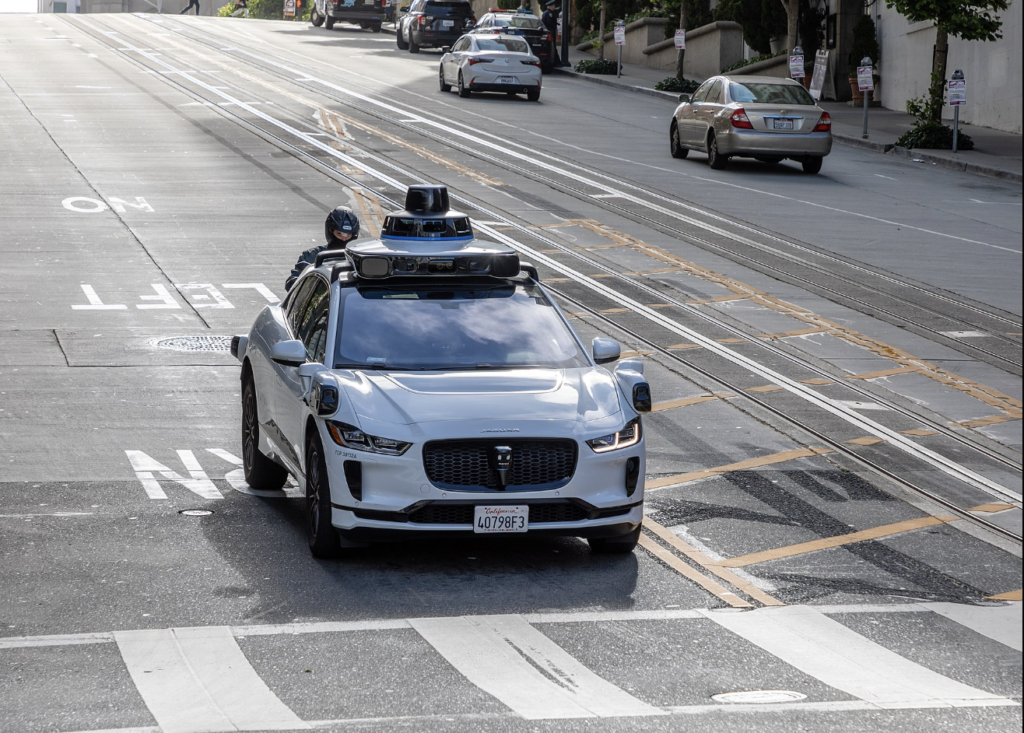The Chronicle got this much right:
The new era of robotaxi service could prove to be more transformative and disruptive for San Francisco — and the country — than when the first Uber and Lyft rideshares arrived on city streets last decade.
But the issue goes much further, if that’s even possible.
One of the impacts of Uber and Lyft was much greater congestion, as people decided to ride in cars instead of taking transit. That has been Uber’s goal all along; the company noted in a public filing that it seeks to replace urban public transportation with Uber cars, something that hardly anyone other than me has reported on.
The driverless cars, even if they’re electric cars, are still cars. They still create more carbon emissions than, say, electric Muni buses or BART trains, which hold a lot more people.

That means they are taking us away from the urban environmental direction that almost everyone in the climate and planning field agrees we need to go.
These companies want to flood the streets with robotaxis. There will be thousands, maybe tens of thousands, in San Francisco and other cities (because once things get started here, like Airbnb and Uber and Lyft, they move all over the world).
So what happens to all the people who drive for a living? That’s more than 2 million people in the country. Uber and Lyft promoted their service (as did Airbnb) as a way for people to make a little extra money on the side; what happens to all the folks who bought a car (with a loan from one of the companies) to get in the rideshare business and will soon be unemployed?
They’ll be stuck in the same place as the taxi drivers who borrowed $250,000 for a permit that became worthless when Uber and Lyft came on the scene.
Next: Robotrucks. From the Teamster’s Union:
“Public safety decisions should not be made by regulatory bodies that are in the pocket of Big Tech. This is blatantly obvious given that Commissioner John Reynolds, who was the lead attorney for Cruise right before his appointment, did not recuse himself from today’s ruling. It’s critical that decisions affecting the safety of California drivers and pedestrians are made by our elected officials.
“That’s why the Teamsters support Assembly Bill 316, bipartisan legislation that would require a trained human operator behind the wheel of AVs weighing over 10,000 pounds. As state regulators carelessly approve the expansion of AVs in California, it is critically important that AB 316 becomes law.”
We are seeing, right now, on the streets of San Francisco, a critical public policy issue that government at every level is failing to address: What do we do when technology displaces human beings in jobs that aren’t really suitable for “retraining?”
What are we going to do to make sure the companies that make money by getting rid of human employees pay the displacement costs that they are creating?
In past industrial revolutions, technology destroyed jobs but also created new ones. Still, for a lot of workers, it sucked: Independent craftspeople and farmers were forced to become factory workers.
This time around, I’m not so sure.
In a perfect world, the robots would a lot of the work, and the humans would work 10 or 20 hours a week, and earn what they are now paid for a 40-hour week.
That requires major, major, government intervention. It would require that governments mandate that the companies making money off this technology share the profits with the people whose lives they damage.
That’s the regulatory decision that matters. And nobody is talking about it.




